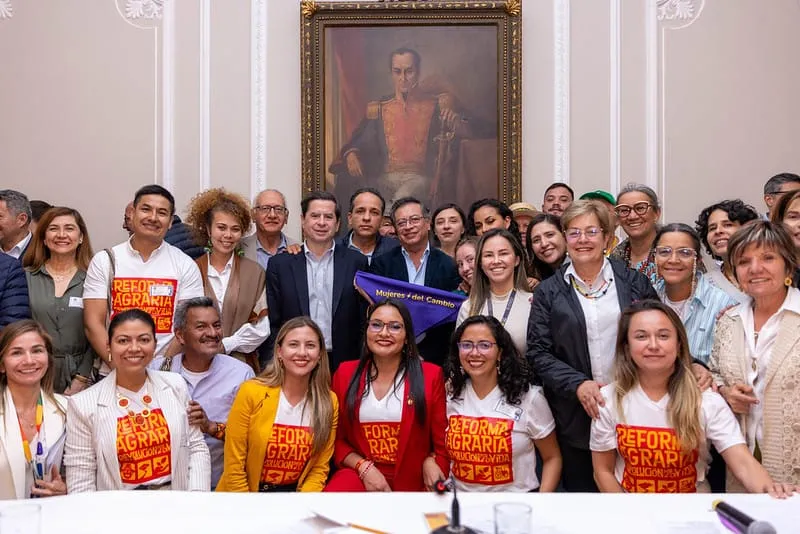PRESS ROOM
 20/9/2024
20/9/2024
The Intersectoral Commission of the National Reform System Sets Concrete Actions for the Remainder of 2024 and Plans the Route for 2025

It held its second session on Thursday, led by President Gustavo Petro and the Minister of Agriculture and Rural Development, Martha Carvajalino.
Bogotá, D. C., (@MinAgricultura) – The Intersectoral Commission for Agrarian Reform, Rural Development, and Comprehensive Rural Reform held its second session on Thursday, led by President Gustavo Petro and the Minister of Agriculture and Rural Development, Martha Carvajalino. This session of the National Agrarian Reform System set forth strategic initiatives and territorial actions to be implemented through interinstitutional and intersectoral efforts during the remainder of 2024 and throughout 2025.
State institutions and representatives from indigenous, Afro-Colombian, and rural communities participated in this space. The Commission's outlined goals aim to improve the quality of life for rural populations, guarantee territorial rights, and support the livelihoods of agricultural workers, as well as rural, fishing, riverbank, and amphibian communities. These actions also include protecting the economies of Black, Afro-Colombian, Raizal, Palenquera, indigenous peoples, and the Romani community, while promoting food production, mitigating the effects of climate change, and consolidating a peace process with a territorial focus. The Commission emphasized the importance of engaging these communities in decision-making related to Agrarian Reform and rural development.
Key Regional Initiatives:
Caribbean and Magdalena Medio Region: The Agrarian Districts strategy will be promoted, focusing on mechanisms for land acquisition and changing land tenure indices, targeting areas with high concentrations of underutilized or unproductive land.
Amazon Region: A stabilization plan will be implemented to curb the expansion of agricultural and cattle frontiers through social, environmental, and economic land management tools.
Orinoquía (Altillanura): Productive, ethnic, and community land management will be promoted, emphasizing productive transformation, rural industrialization, and community associations.
San Andrés and Providencia Archipelago: Agroecological reconstruction efforts will be promoted, prioritizing the protection of the fishing sector and the Raizal population.
Andean Region: Priority will be given to declaring Areas of Protection for Food Production (APPA), promoting associations, and facilitating mass access to credit. Legal land formalization will be focused on ensuring the human right to food through formalization processes and recognition of agrarian rulings.
Pacific Region: Intercultural Territories for Peace will be advanced, recognizing the coexistence of diverse cultural groups and granting territorial rights to ethnic groups and rural communities.
These regional strategies aim to achieve four overarching goals: contributing to peace in territories, strengthening democracy and citizen participation, mitigating climate change, and promoting food production for national food sovereignty.

